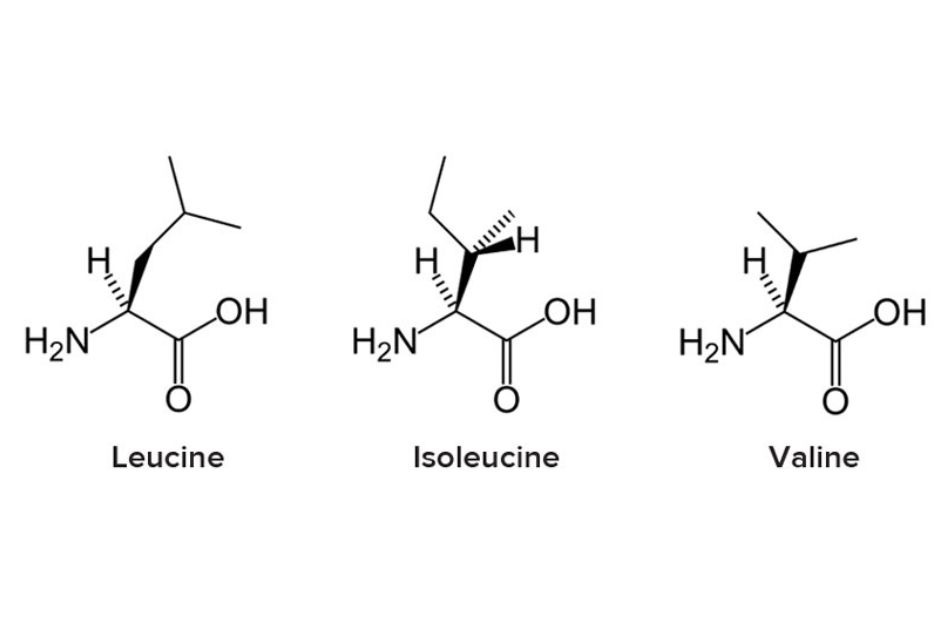Methylated B Vitamins: Essential Nutrients for Optimal Health

B vitamins are critical for many of the body’s fundamental processes, from energy production to cognitive function. Yet, millions of people worldwide suffer from B vitamin deficiencies without realizing it, often due to underlying issues with absorption or genetic factors. According to studies, approximately 10–30% of the population may have trouble absorbing standard forms of B vitamins, such as folic acid and B12, due to variations in the MTHFR gene—a genetic mutation that impairs methylation, a key biochemical process.
Methylation is involved in DNA repair, detoxification, neurotransmitter production, and cardiovascular health, making it essential for the proper functioning of almost every system in the body. When this process doesn’t function optimally, the body struggles to convert B vitamins into their active forms, leading to a wide range of health problems, including fatigue, cognitive decline, and increased cardiovascular risk. This is where methylated B vitamins come in—pre-converted, bioavailable forms that the body can use more efficiently.
In this article, we’ll explore the science behind methylation, the role of B vitamins in the body, and why methylated forms of these nutrients are particularly important for certain individuals. If you’ve struggled with unexplained fatigue, brain fog, or poor health outcomes, understanding the role of methylated B vitamins could be a crucial step toward improving your overall well-being.
B Vitamin Deficiencies: A Global Health Concern
B vitamin deficiencies are more common than many realize, with an estimated 15% of the U.S. population being deficient in vitamin B12 alone, according to the National Institutes of Health (NIH). Older adults, individuals with digestive disorders, and people following plant-based diets are especially at risk. Inadequate levels of B12 can result in anemia, neurological damage, and cognitive decline. Similarly, folate deficiency, particularly during pregnancy, has long been linked to severe birth defects such as neural tube defects, which affect around 300,000 newborns annually worldwide.
But it’s not just B12 and folate. Deficiencies in other B vitamins—such as B6 and B9—are also widespread. In fact, the World Health Organization (WHO) estimates that about 20% of the global population doesn’t get enough B vitamins from their diet. The consequences can range from fatigue and irritability to more severe conditions like cardiovascular disease and depression.
For individuals with genetic mutations, such as the MTHFR mutation, these deficiencies can be even more pronounced. This mutation, which is present in an estimated 40% of people, impairs the body’s ability to process folate and B12 into their active forms, leading to impaired methylation and an increased risk of chronic health conditions. For those affected, supplementing with methylated B vitamins can be a crucial step in preventing long-term health problems.
What Are B Vitamins?
B vitamins are a group of eight essential water-soluble vitamins that play a fundamental role in maintaining cellular health, energy metabolism, and overall bodily function. Unlike fat-soluble vitamins, B vitamins need to be replenished regularly through diet or supplementation, as the body doesn’t store them in large quantities. Here’s a quick breakdown of the B vitamin family:

Vitamin B1 (Thiamine)
- Function: Essential for converting carbohydrates into energy and supporting heart and nervous system function.
- Deficiency: Can lead to conditions like beriberi, which causes weakness, fatigue, and nerve damage, or Wernicke-Korsakoff syndrome, often seen in alcoholics.
Vitamin B2 (Riboflavin)
- Function: Helps metabolize fats, carbohydrates, and proteins, and also acts as an antioxidant.
- Deficiency: Results in symptoms like cracked lips, sore throat, and inflammation of the skin.
Vitamin B3 (Niacin)
- Function: Supports energy production, DNA repair, and healthy skin.
- Deficiency: Can lead to pellagra, a condition characterized by diarrhea, dermatitis, and dementia.
Vitamin B5 (Pantothenic Acid)
- Function: Involved in synthesizing coenzyme A, crucial for the metabolism of fats and proteins.
- Deficiency: Rare, but may cause fatigue, irritability, and digestive issues.
Vitamin B6 (Pyridoxine)
- Function: Plays a role in brain development, mood regulation, and the production of red blood cells.
- Deficiency: Can lead to anemia, depression, and increased susceptibility to infections.
Vitamin B7 (Biotin)
- Function: Supports healthy hair, skin, and nails, and helps with fat and carbohydrate metabolism.
- Deficiency: Uncommon, but can cause hair thinning, skin rashes, and brittle nails.
Vitamin B9 (Folate/Folic Acid)
- Function: Crucial for DNA synthesis and repair, especially during pregnancy and periods of rapid growth.
- Deficiency: Can cause neural tube defects in developing fetuses, and is also linked to anemia and increased cardiovascular risk in adults.
Vitamin B12 (Cobalamin)
- Function: Works with folate to produce red blood cells and maintain the nervous system.
- Deficiency: Affects up to 15% of the population, leading to fatigue, neurological problems, and anemia.
Each of these vitamins plays a specific role in maintaining health, but they often work synergistically to support crucial processes like energy metabolism, cell repair, and immune function.
Methylation: A Critical Biochemical Process
At the heart of many essential body functions is a biochemical process known as methylation. Methylation involves adding a methyl group (one carbon and three hydrogen atoms) to other molecules, which plays a vital role in processes like:
- DNA synthesis and repair: Methylation helps ensure that cells reproduce accurately, reducing the risk of DNA mutations that can lead to diseases like cancer.
- Detoxification: Methylation aids the liver in detoxifying harmful chemicals, heavy metals, and environmental toxins.
- Neurotransmitter production: Methylation helps produce serotonin, dopamine, and norepinephrine, which are crucial for mood regulation and mental health.
- Cardiovascular health: Methylation regulates homocysteine levels, an amino acid associated with an increased risk of heart disease and stroke if levels become elevated.
B vitamins, especially B6, B9, and B12, are critical co-factors in the methylation process. Without adequate levels of these vitamins, methylation slows down or stops, leading to a buildup of harmful compounds like homocysteine. Elevated homocysteine levels, in particular, are linked to an increased risk of cardiovascular diseases, including heart attacks and strokes.
For individuals with the MTHFR gene mutation, the process of methylation is impaired. This genetic variation reduces the body’s ability to convert standard forms of B vitamins (like folic acid or cyanocobalamin) into their active, methylated forms (like methylfolate and methylcobalamin). This is why methylated B vitamins are recommended for people with this mutation: they are already in the active form that the body can use immediately.
The Science Behind the MTHFR Mutation
- MTHFR Gene Mutation Types: There are two main variants of the MTHFR gene mutation—C677T and A1298C. Both can affect the body’s ability to convert folic acid into methylfolate, though C677T is more strongly associated with elevated homocysteine levels and an increased risk of cardiovascular disease. Studies have shown that those with two copies of the C677T mutation (homozygous) can have up to a 70% reduction in MTHFR enzyme activity, which significantly impairs methylation .
- Testing for MTHFR: Genetic testing for MTHFR mutations can be done through simple blood tests or saliva-based kits. 23andMe and AncestryDNA offer genetic tests that include MTHFR variants, though they do not provide health-specific interpretations. Lab services like LabCorp or Quest Diagnostics offer more targeted tests, often covered by insurance if medically necessary. These tests typically measure homocysteine levels, which are markers of impaired methylation.
- Epigenetics and Methylation: Even individuals without the MTHFR mutation can experience impaired methylation due to epigenetic factors. Poor diet, exposure to environmental toxins (e.g., heavy metals or pesticides), and chronic stress can all reduce the efficiency of methylation pathways . This broadens the relevance of methylated B vitamins for a wider population, beyond just those with the mutation.
Clinical Applications of Methylated B Vitamins
- Mental Health and Methylated B Vitamins: A growing body of research links methylation efficiency to mental health outcomes, particularly in depression and anxiety. A 2023 study published in Nutrients found that individuals with treatment-resistant depression had significantly improved outcomes when supplemented with methylfolate, compared to those who received standard antidepressant treatment alone . Methylfolate supplementation can bypass genetic or absorption barriers, leading to better regulation of neurotransmitters like serotonin and dopamine.
- Cardiovascular Health: Elevated homocysteine levels are associated with a higher risk of cardiovascular diseases, including heart attack and stroke. Research shows that supplementing with methylated B vitamins (especially B6, B9, and B12) reduces homocysteine levels and can lower the risk of cardiovascular events in at-risk populations .
- Neurological Disorders: There’s evidence that low levels of B vitamins, particularly B12, are linked to neurodegenerative diseases like Alzheimer’s and Parkinson’s. In one study, individuals with higher B12 levels were found to have a slower rate of cognitive decline and reduced brain atrophy compared to those with lower levels . For individuals with MTHFR mutations or absorption issues, methylated B vitamins could offer protective benefits against cognitive decline.
Should You Supplement with Methylated B Vitamins?
Gut Health and B Vitamin Absorption
- Microbiome’s Role in B Vitamin Production: The gut microbiota, particularly Bifidobacterium and Lactobacillus strains, synthesize some B vitamins like B12 and folate . However, individuals with dysbiosis (an imbalance of gut bacteria) often have reduced production and absorption of these vitamins. Conditions like irritable bowel syndrome (IBS) and small intestinal bacterial overgrowth (SIBO) can impair absorption further. Discussing the connection between gut health and B vitamins can emphasize the importance of a healthy microbiome in preventing deficiencies.
- Impact of Medications: Certain medications deplete B vitamins or inhibit their absorption. Metformin, a common diabetes medication, has been shown to reduce B12 absorption, potentially leading to deficiency in long-term users . Similarly, proton pump inhibitors (PPIs), which are used to reduce stomach acid, can impair B12 absorption since stomach acid is necessary to separate B12 from protein in food. This highlights the importance of monitoring B vitamin levels in individuals taking these medications.
Who Needs Methylated B Vitamins?
- Individuals with MTHFR mutations: Around 40% of the population has some form of the MTHFR mutation, affecting their ability to process folate and B12.
- People with absorption issues: Those with digestive disorders like celiac disease, Crohn’s disease, or chronic gut issues often struggle to absorb B vitamins efficiently.
- The elderly: As we age, our bodies become less efficient at absorbing B vitamins, particularly B12, increasing the risk of deficiencies.
- Pregnant women: Supplementing with methylfolate is especially important for preventing birth defects like neural tube defects.
Integrating Methylated B Vitamins Into a Comprehensive Health Plan
Dietary Sources and Supplements: While methylated B vitamin supplements are beneficial, many whole foods contain B vitamins in their natural forms:
- Folate: Dark leafy greens like spinach and kale.
- B12: Animal products such as eggs, fish, and meat.
- B6: Poultry, bananas, and chickpeas.
Lifestyle Factors Supporting Methylation: Methylation is not solely dependent on B vitamins. Lifestyle factors like stress management, adequate sleep, and physical activity also play a role in optimizing this process. Chronic stress, for instance, can deplete levels of B vitamins and reduce methylation efficiency by increasing the body’s demand for nutrients involved in detoxification and hormone production .
Conclusion on B Vitamins supplementation, methylation and lifestyle
Optimizing your health often requires more than just taking the right supplements—it involves understanding how your body processes nutrients at a deeper level. Methylated B vitamins represent a key part of that equation for those with genetic variations, absorption issues, or elevated health risks. As science uncovers more about the importance of methylation in disease prevention and longevity, it’s clear that taking a personalized approach to nutrition is essential. Whether you’re addressing fatigue, supporting mental clarity, or improving heart health, methylated B vitamins offer a powerful, targeted solution to ensure your body gets what it truly needs to thrive.




